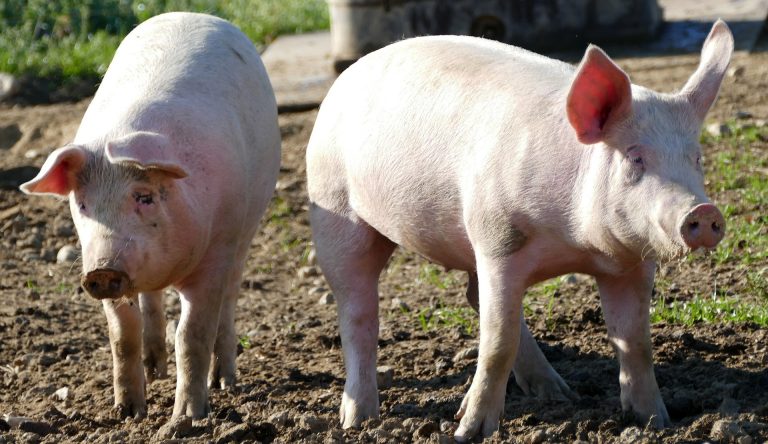As mutations of the coronavirus are rapidly emerging, scientists are striving to design and develop new vaccines. Communist China is subjecting animals to cruel experiments for vaccine studies, making the regime one of the biggest talking points in the debate about ethically controversial research.
On Dec. 9, China’s propaganda outlet the Global Times reported the supposed discovery of a scientific procedure to develop “humanized pigs.” The pigs could be made more vulnerable to serious COVID-19 cases; then the infected pigs would be used for research.
The state-run outlet credited the Institute of Microbiology of the Chinese Academy of Sciences (IMCAS) for the scientific breakthrough. The Chinese Academy of Sciences (CAS) is a formal arm of the Chinese regime and is the world’s largest research institution of its kind.
The development of “humanized pigs” first appeared in a study in August titled “Establishment of a Humanized Swine Model for COVID-19” in Cell Discovery, a scientific journal backed by the CAS. It encouraged the use of genetically modified pigs for COVID-19 research due to the creature’s resemblances to the human body.
The study revealed that Chinese scientists experimented with pigs using Clustered Regularly Interspaced Short Palindromic Repeats (CRISPR) gene-editing technology. The CRISPR tech identifies and severs DNA sequences to genetically modify the immunity of the pigs, making them more susceptible to COVID-19 infection.
Success
You are now signed up for our newsletter
Success
Check your email to complete sign up
CRISPR created an uproar globally in 2018 when He Jiankui, a Chinese scientist, was alleged to have used the technique to genetically modify unborn baby twins to make them unsusceptible to HIV. For performing human experiments without prior approval from the Chinese Communist Party (CCP), he was slapped with a prison sentence of three years.
Apart from the “humanized pig,” researchers from IMCAS teamed up with scientists from Tsinghua University and China Agricultural University to develop another model: the human distal lung organoids (hDLO).
An organoid is “a 3D multicellular in vitro tissue construct that mimics its corresponding in vivo organ, such that it can be used to study aspects of that organ in the tissue culture dish,” Nature Methods reported.
Scientists believe that the two new models could reveal clinical properties identical to actual COVID-19 infection. Researchers will now be able to perform a more definitive and comprehensive study of how COVID-19 evolves in and infects a human body. Moreover, it is likely to enhance the testing of drugs and vaccines as well as precision treatment.
To create a pig that is more susceptible to COVID-19 infections, scientists altered the animal in utero using CRISPR/Cas9 technology to give it an ACE2 receptor, a type of protein that allows the coronavirus to hook onto cells and inflict damage. Without the receptor, the likelihood of the virus multiplying and damaging its host body is less likely.
The ultimate objective of the experiment is to produce more pigs as research models for COVID-19, the scientists claimed. They intend to infect the pigs with COVID-19 and study the progressive deterioration in their health.
The scientists also stated that the lung and kidney cells of the piglets were infected with the COVID-19 virus intentionally, which apparently revealed considerable structural changes in their living cells.
With the experiment producing a large number of piglets in a short time, scientists saw it as a cause for celebration. They wrote that the piglets could also be subjected to other diseases, providing a gateway to “combine these existing diseases to reproduce severe cases of COVID-19.”
This is not the first time that pigs have been used as experimental models to study human diseases. Researchers have been attempting to genetically modify pigs to create organs that can be used inside a human body.














